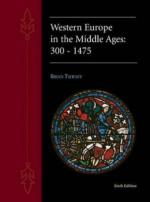|
This section contains 1,424 words (approx. 5 pages at 300 words per page) |

|
Economic Endeavor. Medieval trade was primarily an economic, rather than a social, endeavor, dedicated to buying and selling transactions in local and distant market settings. Sedentary or peripatetic, its principal participants were the medieval merchants or traders whose livelihood depended upon their purchasing goods cheaply and selling them dear. The life of bringing goods to market was never an easy one in the Middle Ages; the merchant was made the target of church doctrine and the golden egg of regional nobility. Exchange did, however, have its potential for lavish compensation, and despite the difficult environment of risky transport conditions, political decentralization, and fiscal disharmony, the key mercantile figures of the Champagne Fairs, the Flemish textile trade, or the Hanseatic League all made a good living. As a collective, medieval merchants were to leave a legacy of having...
|
This section contains 1,424 words (approx. 5 pages at 300 words per page) |

|




